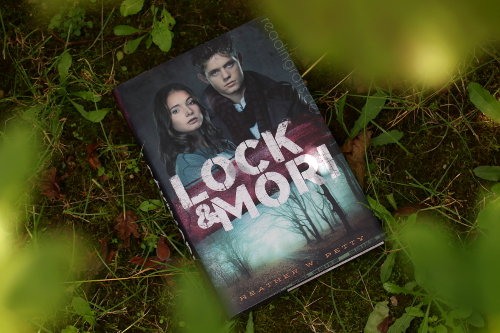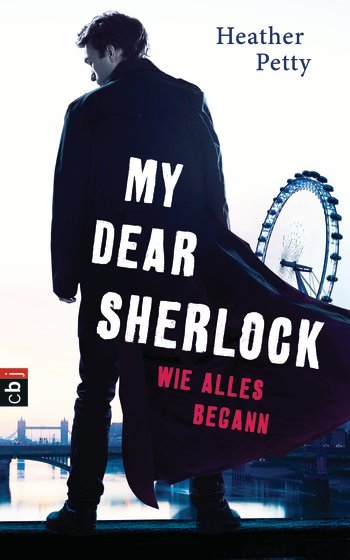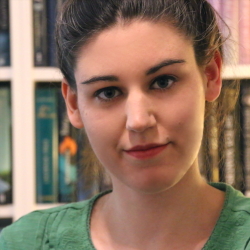Before they were mortal enemies, they were much more…
FACT: Someone has been murdered in London’s Regent’s Park. The police have no leads.
FACT: Miss James “Mori” Moriarty and Sherlock “Lock” Holmes should be hitting the books on a school night. Instead, they are out crashing a crime scene.
FACT: Lock has challenged Mori to solve the case before he does. Challenge accepted.
FACT: Despite agreeing to Lock’s one rule—they must share every clue with each other—Mori is keeping secrets.
OBSERVATION: Sometimes you can’t trust the people closest to you with matters of the heart. And after this case, Mori may never trust Lock again.
Well, that was a really weird reading experience. Weird, because I couldn’t help hearing and picturing the BBC Sherlock actors. Which was sometimes funny, sometimes strange, and most of the time didn’t work at all. For unfortunately, this book doesn’t really work out as a Sherlock retelling – although I have a feeling I know where this series is heading … and it’s all build on dubious creative decisions.
The only Sherlockian character that’s pitch perfect is Mycroft. Sherlock aka Lock is sometimes in character, but most of the times he’s just totally lost and doesn’t come across as a genius at all. And then there’s Mori. The biggest issue I had with her: she’s a girl.
Now, wait a second before you get your pitchforks. I’m all in favour of gender swaps – if done right and, even more importantly, for the right reasons. The original male Moriarty is a mysterious evil mastermind – to see a badass female version of this would have been very cool! However, every inkling of mystery is smothered by turning Mori into the first person narrator. The reader gets to know her inside out – and she’s not that interesting.
So if that’s not the reason behind turning Moriarty female, what is? Well, the other option is to pave the way for a heterosexual romance, which would totally be the wrongest of wrong reasons. That would have worked out with a male Moriarty just as well, probably even better, and would have brought some diversity to the lore. In the end, it doesn’t really matter, because there was no chemistry or sexual tension or whatever between Lock and Mori. There’s an awful lot of kissing, but I never felt there was anything resembling an emotional connection between them, especially since it all started with a kiss on a whim and they just continued from there. You know what whould have been great? Less kissing, more witty banter, and more snark.
To rest my case: I really have no clue why Mori is Moriarty. It makes much more sense to simply change her name to Irene Adler. Mori, her behaviour and character constantly reminded me of Irene. It would have been much more logical and the novel would have earned another star because I wouldn’t have been puzzled all the time by trying to align Mori and her classic counterpart.
The murder mystery was rather bland, the solution and revelation coming along pretty smoothly without much thrill, much sleuthing, much crazy deducing. Only at the very end it got a little exciting – and then it went all downhill and downright ridiculous. The ending simply makes no sense whatsoever from an objective and reasonable point of view, which one should be able to expect from someone who’s supposed to be the great Moriarty. Well, except for setting up the plot of the sequels: the demise of their friendship with benefits/romance/whatever you want to call it and the turning into nemesis. At least I guess this is where this is going. And while this novel and some of the creative choices might make more sense this way, a first book in a series must stand on its own in a way that it is coherent and reasonably establishes characters, relationships, and plotlines – which, in my eyes, this one didn’t. So instead of reading this, just go rewatch the first two to three seasons of BBC Sherlock.









